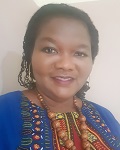2020
Janet Boateng
- Research Fellow
- University of Cape Coast

Abstract
The areas of concern for women in post-independence African states continue to widen. One of the significant issues is women exclusion from statecraft despite their active contribution during decades of nationalism. Historians attempting to recover histories of women during independence struggles often explain why women became activists, and how they were frequently "forgotten" in the political terrain. These scholars hesitate to acknowledge why some women were appointed into government. Historically, the CPP government in post-independence Ghana had specifically designated ten seats in parliament for women to demonstrate their recognition in the independence struggle. Using archival data and interviews, this study will explore reasons behind this designation and what nuances researchers have sidelined when African nationalism is gendered and dichotomized between government and women. This project addresses the history of contestations, using the histories of women legislators in Ghana's first parliament.

